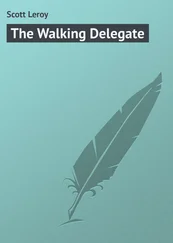I completely circled the outside of the boat twice, inspecting it all, and leaning far out over the transom to learn that painted on the back was the name of the boat. It was called Truant . That meant absentee, to me. Skipping school. Like a rebel, in my mind. I sort of liked it.
After naming and exploring the parts of the sailboat, the book had an interesting beginning chapter. It was intended for smaller boats than the Truant , but I assumed the same principles applied. One line caught my attention: All a sailboat requires is a jib, page fifty-three. It went on to explain about mail sails and stuff I didn’t understand, but that one sentence kept drawing me back. If I knew what a jib was, that would be all I needed, if the title of the chapter was correct.
I found page fifty-three. The illustration showed the triangular sail at the front of the boat. The text explained that for short trips, a boat might only use the triangle sail, suggesting that all the other information was extraneous. If a sailor wished to go in almost any direction and was not in a hurry, the single triangular sail called a jib would do the trick. It gave detailed instructions that didn’t exactly match the Truant , or I misunderstood what they were trying to say. Some of the ropes mentioned in the book used to let the jib-sail out were missing on the Truant .
Still thinking about it, and the missing ropes, I went below and found Sue fast at work using the duct tape to secure the panel she’d cut to fit the opening where I’d broken the window. She had swept up the broken glass and said, “Hey, I found more watertight containers with food in the storeroom. Ever hear of pancake powder where you just add water to make them?”
“No.”
“Well, I’m going to try some as soon as I get this done. Get ready for a feast. By the way, the coffee just got done. I didn’t know how you like it, so I put the powered creamer and sugar beside the pot.”
If I hadn’t been so intent on finding another, more detailed book on sailing, I’d have been knocked down by the scent of coffee. When the smell penetrated my concentration, memories of my mother flooded back so strong I reached for the edge of the table to steady myself. I poured a cup, added creamer until it turned white, and a little sugar, then carried the cup with me to the bookshelf. There were a dozen books on sailing, but one had the word “jib” in the title on the spine, so I selected it.
Back on deck, I checked the GPS and found we’d lost more ground, but were in no danger from shallow water, rocks, reefs, or pirates. We were simply not going in the direction I wanted. The engine could move us, but later we might need the diesel in the tank. I sat in the partial sunshine of the cockpit and studied the new book, or more precisely, a manual on how to operate the electric jib-furler. With a few illustrations, understanding came. If I understood the manual, instead of using awkward ropes and poor skills to deploy the jib sail as the other book had detailed, all that was required on Truant was the push of a button.
Back at the wheel, I found the correct button or one that looked like those pictured in the manual. I pushed it and heard a slight whirr of an electric motor somewhere inside the boat. At the bow, a sail unfurled slightly. It was a triangle of maybe three feet wide and five tall that appeared from being wrapped around a metal tube. I let my finger off the button. At the lower end of the sail was a thick rope wrapped around a metal barrel and tied off.
That rope was mentioned in my book, so I felt better. After giving it some slack, I let more sail out by pushing the button until half the sail had been deployed and I used the rope to let out more line. The sail hung limp. I pulled a little of the rope to me. A puff of wind made the jib pop like the shot from a small gun as it filled. According to the manual, I needed to keep the rope around the barrel and turn a handle to tighten the sail so the wind would work against the rudder and propel the boat forward. If that didn’t sound confusing enough, half the words didn’t make sense. Nautical language again—and totally incomprehensible.
I turned the helm, which was the steering wheel in my terms, and pointed the boat slightly against the incoming wind. The sail grew tauter. I cranked the handle. The boat surged ahead, despite the small amount of sail deployed. The motion of the boat went from idle bobbing at the vagaries of the breeze to a definite direction. The boat leaned slightly to one side. I pulled in more of the rope and the boat leaned more as the speed increased.
A glance behind at the water revealed a wake. We were actually moving! I looked at the GPS and already we’d gained a little distance according to the little boat on the blue screen, a hundred yards or so. My guess was we were surging along at a mile or two an hour. I gingerly pushed the button and let out a little more jib and tightened the rope again. Our speed increased, as did the lean of the boat—and we were going in the correct direction!
The sounds around me changed. The hiss of water streaming along the hull, the wind whistling in the rigging, and the slap of the bow meeting oncoming waves. My spirit soared. We were sailing.
I felt powerful. The boat under my feet could carry me to Oregon, California, or even Hawaii. Anywhere there was water. It was like flying on the surface of the ocean at a speed of three or four miles an hour.
Sue came on deck, gave me a nod of pride, and disappeared below. She reappeared a few minutes later with a plastic plate in hand. On it was a stack of pancakes, covered with syrup. “No bacon, sorry. You’ll have to make do without that. Hope you like pancakes.”
I did. Even better, since fleeing home to live in the mining tunnels, I’d never eaten enough at a single meal to fill me up for fear there wouldn’t be enough for the next meal. Now there was a stack of four pancakes, a full meal, the wind in my face, and the indicator on the GPS said we were traveling at three MPH, almost four.
I held onto the wheel because letting go allowed the boat to turn and the wind disappeared from the sail. The boat then slowed, stood upright, and bobbed where it sat. Catching the wind again put us sailing in the direction we wanted.
“Three miles an hour?” Sue asked with delight and more than a little ribbing.
“Almost four, when I get the wind just right,” I corrected.
“How long do we have to go to reach the islands we want?”
I didn’t know. “Fifty miles? Can you set a destination on the GPS and see what it says?”
“There must be a way.” She set her plate aside and started pushing so many on-screen buttons I got worried, then decided there had to be a default screen, probably turning it on and off would reset it. She couldn’t hurt it, but she was like the next generation with buttons and computers she knew nothing about. Their attitude was that if you punched enough of them, the correct screen would eventually appear.
She said while completely distracted, “By the way, there is a duplicate GPS screen in the cabin beside the steering wheel down there in the cabin.”
Good to know. However, my mind was churning out numbers. If we sailed three miles an hour for ten hours, that would be thirty miles. If the distance to the beginning of the islands was fifty miles away, as I’d guessed, we’d reach the San Juan Islands sometime tomorrow. No need to read the sailing books any farther if we could get there in even two or three days without using the motor.
My eyes went to the furled mail sail as if in spite. We didn’t need it and the other complications that come with it. We didn’t’ need the engine. I was more than satisfied with things the way they were and the simple task of sailing with the jib. At least for now. “How much food did you find?”
Читать дальше












